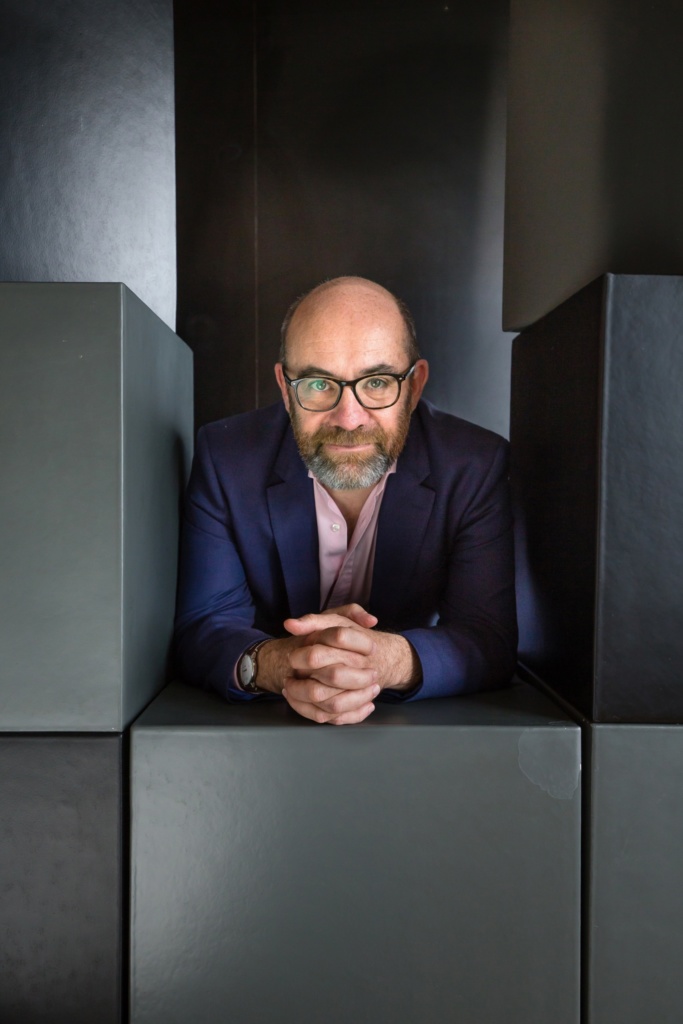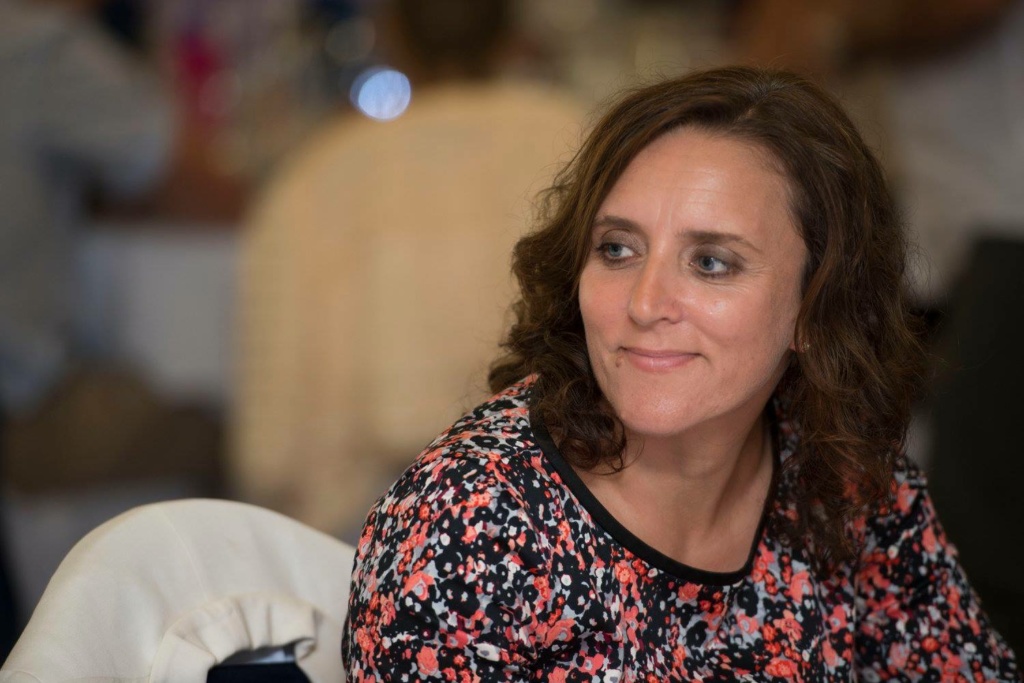
Changes to schooling that would have taken years to happen took a matter of days or weeks when the lockdown struck.
With a new school year well underway there are many challenges to face, but there are also opportunities to build on the changes in areas like online learning so that they become a long term feature of the school landscape.
So, what are those opportunities? And how can school leaders ensure that the positives that emerged from those lockdown months aren’t left at the roadside?

What are the key challenges – and opportunities – schools face during this academic year?
Shonogh Pilgrim: People seem to be really exercised by arrows on the floor. Of course, I have to be involved in that, but I also want to keep school as normal as possible within the constraints that we have, rather than look at it as a hazard environment which makes the kids fearful.
So, a key challenge is to be ourselves as well as think about whether we should try to do things as we did or do things differently if we can’t make something work as effectively as before. We realised that we couldn’t continue detentions because they would be cross bubble. When we questioned why we did them none of us could come up with an answer more satisfactory than “we do it because they wasted our time so we will waste theirs”. So, we’ve decided to get rid of them and try hard to be a no exclusion school.
Lord Jim Knight: Where the challenges lie over the next year really depends on your appetite for risk. Shonogh has more appetite for risk than many other school leaders. That’s good because that’s how you make progress and innovate. But we have a compliance culture that minimises risks and makes us put up signs.
Unfortunately, we have created a culture of fear amongst school leaders. It’s a huge obstacle and challenging for people’s mental health. It’s interesting how low down the list learning is and I’m sure that is the case across the country and yet there are issues around catch-up and recovery for those kids that fell behind.
Then there’s the mental health of those children who have been through trauma and have come back into a big setting with lots of people. If they have been through traumatic experience at home, I think that will be particularly difficult. Leaders have to gauge what their own school community has been through and how to steer the best course through.
How should school leaders respond to those challenges and opportunities?
Shonogh: How you respond really depends on how you operated in lockdown. If you were a school that operated “fully’ during lockdown and interacted with pupils and parents and normal learning and you have innovated during lockdown there are all sorts of opportunities to optimise how you do things. I hope that schools can learn from each other.
The RSC office contacted me asking me if I needed any help interpreting government guidance. I said that I had no problems with the guidance but that I would love to have a conversation about how I could keep some of the freedoms which I know worked well for my students during lockdown. Lots of companies are trusting staff to work away from the office but we are not having the same conversation about students.
Jim: It’s a failure of the system not to trust professionals and there’s a fair amount of dogma in the way the system is led. It’s a system that in its fundamentals has a lot of delegation but the freedom that that delegation should give schools is removed by the accountability aspects of the system.
In most cases there will be a lot of pragmatism, with schools working out how best to respond to the guidance as it changes. In some cases, things will change fundamentally. When I talk to headteachers it is clear they have changed the way they communicate with home. They have worked out how to use online technology to best engage their parents, moving events like parents’ evenings online. The widespread use of Office 365 and Google Classroom has changed options around homework.
During the last six months the time and space constraints for learning and how you run a school have shifted considerably. We should try and hang onto things that we have felt liberated by, but we can’t rush it. There should be ongoing reflection and discussion amongst professionals about that.
Shonogh: I agree that the relationship with parents has transformed. The immediacy and the communication channels have changed and there has been a real breaking down of the barriers between parents and headteachers. Parents often have a reverence for the position but now they have seen more of me online, for example through my update videos, they’re seeing the relationship as more equal. I wish I’d realised that this was necessary before the pandemic.
Will we see fundamental, permanent shifts in the ways schools operate?
Jim: The pandemic has just accelerated the much-needed adoption of technology and there will be qualitative improvements attached to all that. We have been allowed to think differently about assessments and national tests and university admissions this year.
We need to question whether getting as many kids into university as we can is the right thing. Parents will still want to see their children going on to further study, but they may begin to question the normal rite of passage to university. There are more pathways emerging. For example, T levels and apprenticeships. Universities are also embracing technology and there is significant growth in online degrees. Learning online will be a big part of the experience for many students in bricks and mortar universities; that will have a big cultural impact down the line for education.
Shonogh: The shifts will only be permanent if we can demonstrate that they have been successful. If we can demonstrate that our kids have not lost as much learning as many commentators insist they have then we have a chance of convincing government that there is a different way of doing things.
The difficulty we face is that we still measure everything in a narrow and systemically biased way, using exams which are biased towards certain types of learners. It’s going to be hard to demonstrate how successful these have been when the measure of success is so narrow.
During lockdown we had student who concentrated her learning in the morning and then went kayaking in the afternoon. That worked for her as a learner but that is not going to be measurable when it comes to her GCSEs. What I do know is that I won’t be able to live with myself if we leave these new approaches at the roadside and go back to what we’ve always done. Blended learning has unlocked the potential for some children and enabled them to be successful. I can’t ignore what has worked for them.
What message would you give school leaders as they settle into a challenging new school year?
Jim: First, look after yourself and your own mental health so that you are in the right place to look after everyone else’s. Have the confidence to lead. Don’t wait to be led by the system because the system is really struggling to cope right now.
Shonogh: Slow down and take your time to think before you act. Don’t just jump on the latest guidance and then realise that you are miles away from where you believed you should be as a school. Know where you want to go and judge every decision against that. Be rigorous and don’t be in a hurry to act on everything that we are told to do.
Lord Jim Knight is Chief Education and External Officer at Tes Global, an international education business supporting schools in their work to improve children’s lives through education. He is a Member of the House of Lords and was schools minister in the last Labour government. Shonogh Pilgrim is Principal of Ansford Academy in Somerset.
Register for free
No Credit Card required
- Register for free
- Free TeachingTimes Report every month